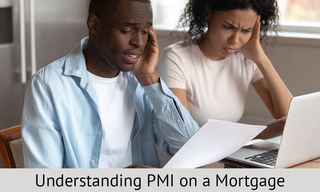Understanding PMI on a Mortgage

You may have heard the term PMI as you have been shopping around for a mortgage, but don’t know what it means or how it affects you. Not to worry, let’s take a more in-depth look at what a PMI is and how it can impact your chances of getting a mortgage.
What is Private Mortgage Insurnace Exactly?
PMI stands for private mortgage insurance. It is a kind of mortgage insurance that you may be required to have if you purchase a home through a conventional loan. Although it may seem to run counter to its name, the PMI requirement is there to protect the lender and not you. The purpose of PMI is to protect the lender from a loss if you default on the loan.
FHA loans, which stands for federal house loans, also have a similar requirement; which is known as your mortgage insurance premium (MPI). Unlike conventional loans, however, where you can often get rid of your mortgage insurance requirement over the years, FHA buyers are required to keep up their MPI payments for the duration of the loan.
PMI Charges
PMI can be charged in various ways, usually according to who your lender and their policy. Typically, there is a premium incorporated as part of your monthly mortgage payment, which means that even though you’re paying somewhat more than you would without it, you don’t have to worry about writing an additional check every month.
In other instances, PMI is collected as one lump-sum during settlement, which means that you would have the option between paying in cash-on-hand or rolling the payment over into your loan amount. In another case, you may encounter a combination of both upfront and monthly payments.
How Long Do You Have to Pay PMI Charges?
Many mortgage lenders allow you to drop private mortgage insurance when you have built up at least 20% equity in your house and have a loan-to-value ratio of 80%. How quickly you get there depends on things such as your monthly mortgage payment size, and your down payment.
Occasionally mortgage lenders will require a few additional conditions that you must meet to get rid of your PMI requirement. One such example is that you may be required to provide a history of making timely mortgage payments or the lender might not allow you to drop the requirement if you also have a second mortgage.
Is there a Way to Avoid Private Mortgage Insurance?
The most obvious and simplest way to avoid paying PMI is to have the requirement waived altogether. You should be able to get the requirement waived if you’re ready to make a significant down payment which covers 20% of the loan and gets you an 80% loan-to-value ratio from the beginning.
In the long run, you have to do what works best for you. While it is possible to avoid PMI for some, others will have to accept the PMI requirement is simply a necessary evil and integral to becoming a homeowner. It’s your decision if you can balance your financial situation with the realities of your local market to make an informed decision which will work for you. If you are in the greater Tampa Bay Area and want to know more about PMI, call me at 813-915-6649 or email me at [email protected]. I have years of experience and the knowledge to advise you on current real estate trends and if PMI works for you; call me today.
About the Author
Jonathan K. Davis
Jonathan K. Davis is a seasoned Area Mortgage Manager with Fluxx Funding. He has devoted more than 14 years in the mortgage industry. Jonathan is a proud Husband, Father of three, and US Army Disabled Veteran. He earned Bachelor's degree in Management and Business, and an MBA in Marketing. The biggest challenge in the mortgage industry is maintaining expert knowledge of an astounding number of guidelines and loan programs. It is where Jonathan thrives. His desire is to consistently offer his clients the best product to meet their unique needs. This disciplined, life-long learner relishes the details. He takes the time to understand the guidelines, which change often with new legislation. Jonathan doesn’t mind taking his time to ensure the product is the right one for his customer. Missing important details may lead to poor client experiences and delay closings. Consumer Access Website http://www.nmlsconsumeraccess.org

